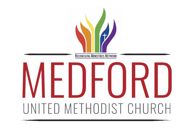
I promised I would watch my steps
so as not to sin with my tongue;
promised to keep my mouth shut
as long as the wicked were in my presence.
2 So I was completely quiet, silent.
I kept my peace, but it did no good.
My pain got worse.
3 My heart got hot inside me;
while stewing over it, the fire burned.
Then I spoke out with my tongue:
4 “Let me know my end, Lord.
How many days do I have left?
I want to know how brief my time is.”
5 You’ve made my days so short;
my lifetime is like nothing in your eyes.
Yes, a human life is nothing but a puff of air!
Reflection
Today’s Psalm strikes on an issue that I don’t think I’m alone in struggling with – speaking out even when acknowledging our limitations. Many of us want to speak up and out about big social justice issues but are stifled by fear. That fear can be from the many possible reciprocations of speaking out, but it can also have an additional source: the fear that we can get it wrong, that we can speak loud and proud and be wrong. That maybe our language isn’t updated enough or the lack of exposure firsthand to the issue makes our words weak. Maybe we mean it one way but say it in a way that it isn’t heard with its intent.
I’ll be vulnerable and give a personal example:
Many years ago, I had a church internship job where I was teaching lessons on Methodism. When we got to the topic of the modern United Methodist Church, I tried to navigate my way around a conversation about the current schism in the denomination over the LGBTQ+ community. My intent was simply to give unbiased facts; however, a congregant found my words too blunt, and found themselves feeling hurt by how I approached the conversation. It was later when my boss spoke to me about it, that I found out that my own limited knowledge led me to not have the proper words for this discussion. I sobbed in the middle of the coffee shop. I was so ashamed; how could I have allowed myself to speak in a way that would hurt someone? My goal, my ministry is for a fully inclusive church, yet my words lacked the celebratory tone that the congregant needed during such a tumultuous time.
If you saw Pastor Joe’s sermon last week – this is the moment that came to my mind when he asked us to think of the moment of our ultimate shame and embarrassment. I wore the word “failure” for a very long time after this mistake.
My failure in properly leading this conversation in a way that lifted up each individual person led to me staying very tight lipped on the subject for far too long – I was so scared of using the wrong word or not knowing something important. I began putting in the work to update my language, to educate myself on the many nuanced facets of this topic. Eventually I had to be willing to speak up again, even if it meant being corrected again – it was the only way I was going to truly learn. The silence did me no good. it brought me more pain. There’s only so much you can learn with your head in a book. As the Psalmist mentions, human life is too short to wait until we’re fully ready to speak up. The marginalized need our voices now, not tomorrow.
I had to be willing to fail again in order to free myself from my mistake.
By Rachel Callender
For Pondering & Prayer
Take a breath, close your eyes, and imagine a red string pulling inward toward your core. What words are sitting there at your core, afraid to be spoken? Imagine wrapping the string around those words and pulling them to your lips. What would it look like to say them out loud?
Prayer: Holy God, we are so imperfect. Even when we truly try, even when we mean well, we still find ourselves drowning in failure. Forgive us. Free us. Help us. May we look to your Spirit to guide the words that escape our mouths. Amen.
